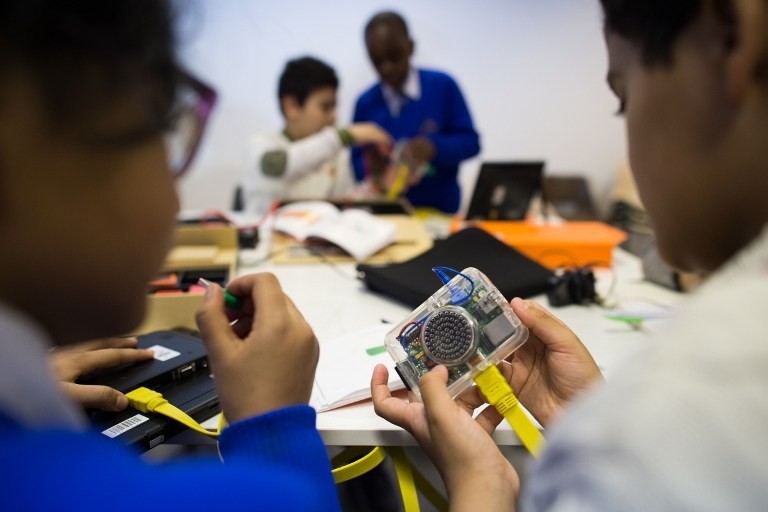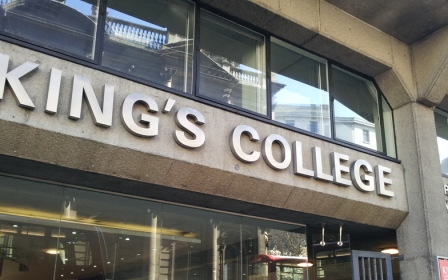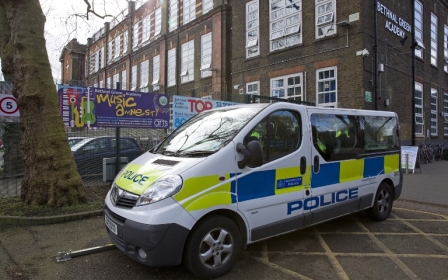Schoolboys quizzed by UK police over toy guns and 'speaking Arabic'

A school in England called police to question two British Asian brothers aged five and seven about concerns they were at risk of radicalisation after the older boy said the pair had been given toy guns as presents and teachers claimed he had spoken Arabic.
The boys were isolated from other pupils and questioned by uniformed police officers for 90 minutes in March last year following the referral, which was a consequence of teachers’ duty under the Prevent counter-extremism strategy to monitor students "deemed to be at risk of being drawn into terrorism".
Teachers also alleged that the older brother had been speaking Arabic and had said that his father had taken him to a mosque, according to the civil rights campaign group Liberty. They also said the decision to call police in accordance with the government's Prevent guidance was a consequence of the older boy’s "changing behaviour".
But Liberty said that neither of the boys, who come from a mixed Indian and Middle Eastern background, spoke Arabic nor had ever visited a mosque. Their father is a non-practising Muslim and their mother is a non-practising Hindu, it said.
Following legal action by Liberty, Central Bedfordshire Council’s Local Education Authority admitted that teachers had discriminated against the boys. The authority said it had overhauled its Prevent duty guidance for teachers as a consequence of the case.
The LEA also admitted breaching the boys’ rights to a private and family life, freedom of religion and freedom of expression which are protected under the UK’s Human Rights act.
The identity of the boys and the school involved have not been made public to protect their anonymity.
Human rights campaign groups and international watchdogs have repeatedly raised concerns that the enforcement of the Prevent Duty in schools may infringe the rights of children and lead to unnecessary referrals because of poor training or safety-first attitude among teachers.
UK counter-extremism policies 'violating children's rights'
Lucy Allan, a member of parliament for the governing Conservative Party, on Friday called for the Prevent Duty, which was introduced in the 2015 Counter-Terrorism and Security Act, to be removed from primary schools and nurseries.
Allan said that while there were examples of good work being done as a consequence of Prevent but that an unintended consequence of the Prevent Duty had been its impact on “certain communities that are perceiving what could be a benign state intervention as something to be feared”.
“I believe there are many in all our communities who are adamantly opposed to Prevent and for good reason,” said Allan, adding that the suppression of political or religious views considered “too Conservative or too extreme” could be perceived as authoritarian.
“What the government sees as helpful and benign can feel to the person experiencing the intervention as authoritarian and can potentially undermine the values that we all hold dear and seek to protect.”
The mother of the two boys said they had become more guarded and reserved as a consequence of the incident and had both suffered nightmares. They have since moved schools.
According to the mother’s account, when she went to pick the boys up from school she was told that the police had been called because of an incident and that she was not allowed to see her children until police had spoken to them.
The boys were isolated in the school library for 90 minutes before being questioned by police officers who decided there was no matter to pursue.
'Utterly humiliated'
"To this day, I cannot fathom why a teacher who has known my family for years would suspect terrorist activities based upon a plastic toy gun," the mother said.
"Our only distinguishing feature is the colour of our skin. I was utterly humiliated by this experience – but more importantly my sons were confused and terrified.
"They had to move schools, lost important friendships and – crucially – they lost trust in their teachers. They will carry the scars of this experience for some time yet."
Debaleena Dasgupta, a Liberty legal officer and solicitor for the children, said: "There were absolutely no grounds to believe the children were at risk of radicalisation. They fell foul of the Prevent Duty purely based on the colour of their skin.
"It’s encouraging that this LEA recognised the school would never have called the police if a white child had received a toy gun, and has committed to improving its Prevent processes.
"But while the Government continues to compel teachers to view pupils with suspicion, we will continue to see incidents like this."
Teachers raise concerns over 'crass' Prevent training
Bedfordshire police said officers had attended the school because of "reports of concern for safety". It said the officers were not there "in a Prevent capacity" and had only been at the school for a short time.
Central Bedfordshire Council said: "All schools receive regular training on the Prevent strategy to ensure that any potential incidents are dealt with sensitively and appropriately.
"Prevent referrals in Central Bedfordshire are falling due to school staff being more confident about how to handle incidents, so only the most serious, which cannot be dealt with at a local level, are referred."
Teachers have raised concerns about both the effectiveness and negative consequences of the Prevent Duty and the quality of the training they have received to help them meet their obligations.
Prevent courses on sale to schools deemed 'poor quality'
Yasmine Ahmed, the director of Rights Watch (UK) which last year called for the implementation of Prevent in schools to be abandoned, told Middle East Eye that the case of the two brothers was "as unsurprising as it is shocking" and "emblematic of the inherent structural flaws of Prevent".
"A strategy based on a dangerously vague definition of extremism, and implemented by teachers who receive inadequate training and guidance but are anxious to be seen to be complying with the statutory duty, can only lead to these outcomes," said Ahmed.
"Unless the government engages with the serious human rights and policy implications of the Prevent strategy and immediately establish an independent review, incidents like this will continue to occur with grave consequences for children in the United Kingdom.”
The government says that Prevent training has been rolled out to more than half a million public sector workers and that Prevent Duty is a necessary measure because of the "very real threat" posed by both "Islamist and extreme right-wing radicalisation".
Responding to criticism of the Prevent Strategy by parliament’s human rights committee last October, the government said: "Protecting pupils from the risk of radicalisation should be seen as part of schools’ wider safeguarding duties.
"We recognise the importance of dispelling myths and improving understanding of Prevent, and are working proactively to communicate its positive impact and encourage balanced reporting by the press.
"We are also working closely with schools and local communities to improve understanding of the duty and make clear that it is about safeguarding young people from the dangers of being drawn into terrorism."
Middle East Eye propose une couverture et une analyse indépendantes et incomparables du Moyen-Orient, de l’Afrique du Nord et d’autres régions du monde. Pour en savoir plus sur la reprise de ce contenu et les frais qui s’appliquent, veuillez remplir ce formulaire [en anglais]. Pour en savoir plus sur MEE, cliquez ici [en anglais].




